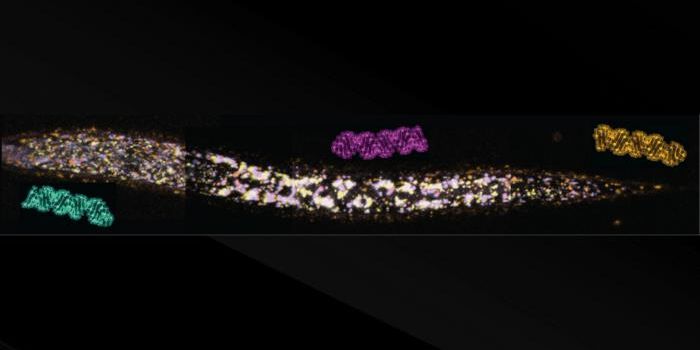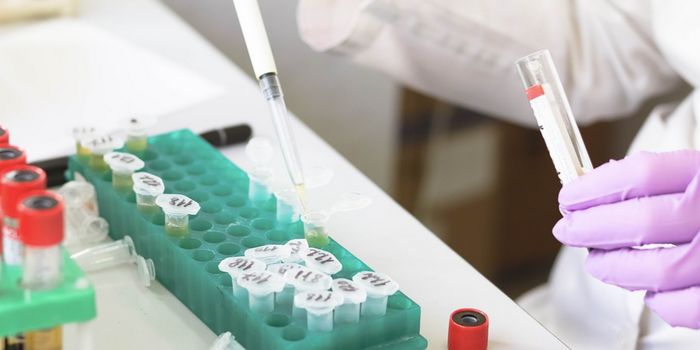Errors in the sequences of genes can cause a wide variety of different diseases. Once a genetic mutation that causes a disease has been identified, in theory, the disorder could be treated or cured if the genetic error responsible for the disease could be fixed. While researchers have made huge advances in genetic engineering that have allowed us to change the genome or alter gene expression, it can be extremely challenging to get the reagents that perform those functions into cells, where they need to go to do their job. Scientists have now made progress on that front too.
Since viruses can naturally get into cells, and many are very small, researchers have taken advantage of their abilities and engineered harmless viruses that can be used to deliver gene therapy materials to the cell. One virus that is often used for this purpose is called adeno-associated virus (AAV).
There are existing AAVs that can get across the blood-brain barrier and into neurons, but they can't deliver large genomic sequences. Promotors are genetic elements that can switch gene expression on, and they can be big, especially when combined with the gene they activate. Reporting in Molecular Therapy: Methods & Clinical Development, Princeton University researches have created new, small promotors that can keep genes active for a long time, and can be used with AAVs that cross the blood-brain barrier.
This work may be especially useful in neurons and may open up treatment options for neurodegenerative diseases including Parkinson's and Alzheimer's diseases. Such a treatment would use the correct version of a therapeutic gene along with its promotor, which would be delivered to cells in the brain using a modified virus or viral vector.
In this work, a research team led by Esteban Engel, a researcher in viral neuroengineering in the Princeton Neuroscience Institute, designed new promotors that sit in a viral vector, and can turn a gene on after the vector has entered neurons. In designing them, the scientists used some of the attributes of herpes viruses because they can establish a chronic nervous system infection, and persist in the body for a long time.
They tested their system in a mouse model, and found that they were able to trigger gene expression, which lasted for a long time in the mouse brain.
"These new promoters will allow us to deliver larger genes or multiple small genes," Engel said, "and the genes can remain active for as long as they are needed."
Sources: AAAS/Eurekalert! Via Princeton University, Molecular Therapy: Methods & Clinical Development








